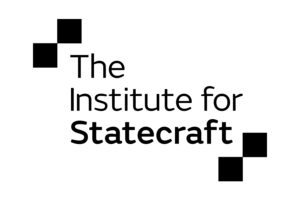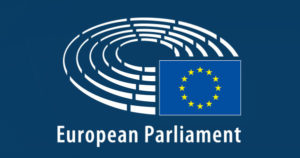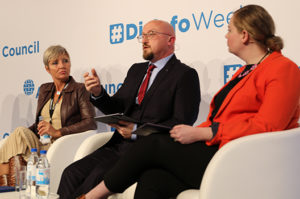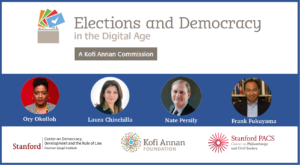 Cyber-attacks could turn elections into “tainted exercises” that undermine Western democracies, the foreign secretary has said. In a speech in Glasgow, Jeremy Hunt said authoritarian regimes view democratic elections as “key vulnerabilities” to be targeted, the BBC reports:
Cyber-attacks could turn elections into “tainted exercises” that undermine Western democracies, the foreign secretary has said. In a speech in Glasgow, Jeremy Hunt said authoritarian regimes view democratic elections as “key vulnerabilities” to be targeted, the BBC reports:
But he stressed there was no evidence of successful interference in UK polls. Mr Hunt called for economic and diplomatic sanctions to be part of the response to attacks. He added that the government was expanding its network of “cyber attaches” – diplomats working with governments around the world to address the problem.
“Events have demonstrated how our adversaries regard free elections and the very openness of a democratic system as key vulnerabilities to be exploited,” he said. “Authoritarian regimes possess ways of undermining free societies that yesterday’s dictators would have envied.”
The UK’s National Crime Agency is leading an investigation into a suspected cyber attack on a British institute that seeks to counter Russian disinformation, Sky News reveals. Whitehall sources said it is highly likely that Russia’s military intelligence service carried out the hack-and-leak of files from the little-known Institute for Statecraft.
A new report on technology, democracy and the polarization of public discourse aims to move “beyond simple dichotomies between cyber optimism and cyber pessimism.”
 Technology is inherently political, and the ways in which it is designed and used have ongoing implications for participation, deliberation, and democracy. Algorithms, automation, big data analytics and artificial intelligence are becoming increasingly embedded in everyday life in democratic societies, say the authors of a comprehensive new report from the European Parliament Think Tank, Polarisation and the use of technology in political campaigns and communication.
Technology is inherently political, and the ways in which it is designed and used have ongoing implications for participation, deliberation, and democracy. Algorithms, automation, big data analytics and artificial intelligence are becoming increasingly embedded in everyday life in democratic societies, say the authors of a comprehensive new report from the European Parliament Think Tank, Polarisation and the use of technology in political campaigns and communication.
While the initial idealism surrounding the democratic possibilities that social media would usher has waned .. it is possible to envisage the new possibilities that digital technologies offer for
productive engagement and debate amongst citizens, including new forms political participation, from targeted messaging to digital political strategies and
computational tools, the report suggests:
The rapid pace of these advances will undoubtedly pose new challenges for governments and
policy-makers. But as recent efforts to fashion healthier communities, influence positive political behaviour through user-centred design, implement contextual and strategic regulations, and provide the public and policy-makers with enough context and resources to understand contemporary threats to democracy and curb the reach of extremism are beginning to pay off, these prospects also offer hope about our collective potential to realise the internet’s original vision: engage, inform, and empower citizens across the globe. RTWT

ACUS
As democracies around the world struggle to counter online disinformation, the developing democracies of the Western Balkans “have been hit by this new wave of disinformation being much less prepared or resilient than Western societies,” according to Jelena Milic, director of the Center for Euro-Atlantic Studies in Serbia. The region, which saw devastating conflicts in the 1990s following the breakup of Yugoslavia, has been increasingly targeted by foreign-backed and homegrown disinformation in recent years, made worse by deep public mistrust of governmental institutions, the Atlantic Council’s David A Wemer reports.
Milic and other regional experts discussed the rise of disinformation in the region as part of the Atlantic Council’s Disinfo Week event series,
 The Russian state is engaging in “subtle and insidious” disinformation campaigns that aim to “weaken America’s commitment to Europe” and “exploit the open market of ideas in our democracy,” said Gordon Sondland, the US Ambassador to the EU. “In order to sow discord, division, and doubt, the Russian state has used malicious tactics to systemically inflame the existing divisions within our societies,” he told a Brussels audience on Thursday (7 March), Euractiv reports.
The Russian state is engaging in “subtle and insidious” disinformation campaigns that aim to “weaken America’s commitment to Europe” and “exploit the open market of ideas in our democracy,” said Gordon Sondland, the US Ambassador to the EU. “In order to sow discord, division, and doubt, the Russian state has used malicious tactics to systemically inflame the existing divisions within our societies,” he told a Brussels audience on Thursday (7 March), Euractiv reports.

Credit: ACUS
Daniel Fried (right) of the Atlantic Council said that “transparency rules” should be put in place to verify online identities in the social media space. The former US diplomat also came down hard on the social and civic responsibility of the social media sector.
“What is being sold on the internet today is actually you and me,” he said. “Our detailed profiles are the commodity that is central to the business model of the social media companies.”
Heads of social media “believed they were living in a post-national paradise, a new utopia,” added Fried, a National Endowment for Democracy board member. “They are now eager, if not desperate, to be seen as doing the right thing.”

UNESCO
Panelists at a recent UNESCO conference on artificial intelligence and disinformation supported multi-stakeholder responses like Storyzy, a tech start-up created to address emerging challenges by using AI to and classify online sources according to the probability of them spreading disinformation; the Journalism Trust Initiative, which brings together media managers, editors, publishers and regulators.
Speakers also agreed on the importance of further research, as well as of efforts empowering users through Media and Information Literacy, such as those promoted by the Global Alliance for Partnerships on MIL, the Council of Europe and the High Level Expert Group set up by the European Commission(link is external) to counter online disinformation, among others.







